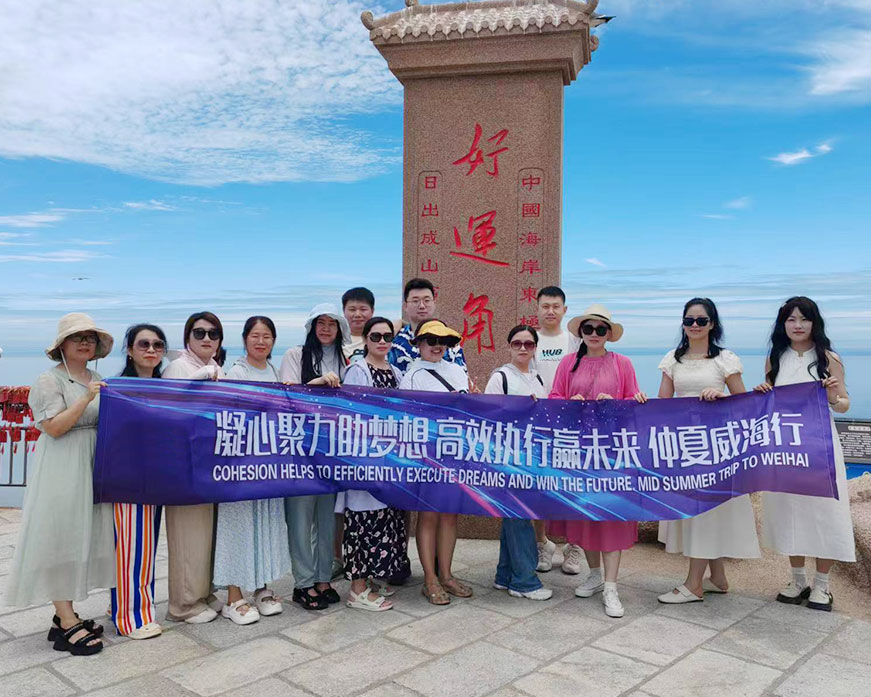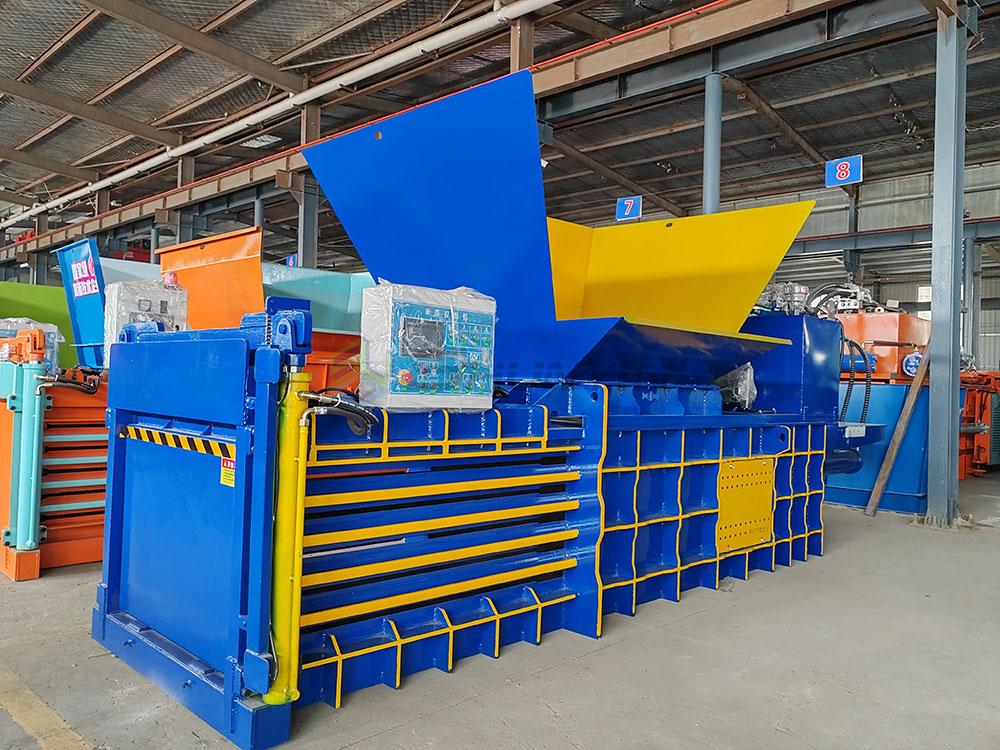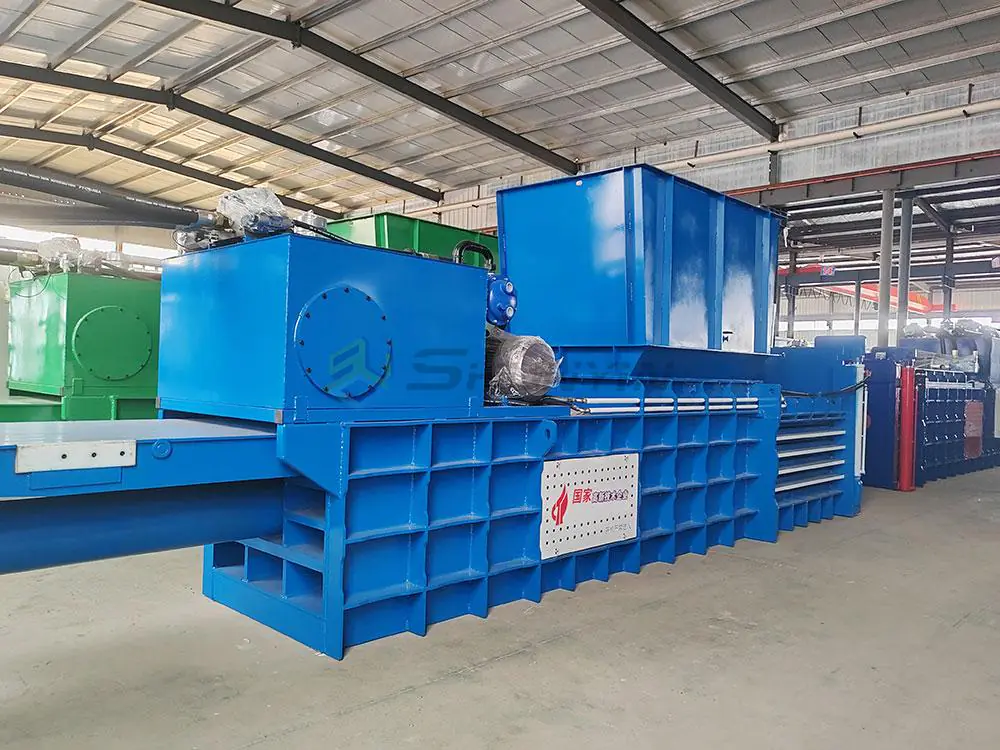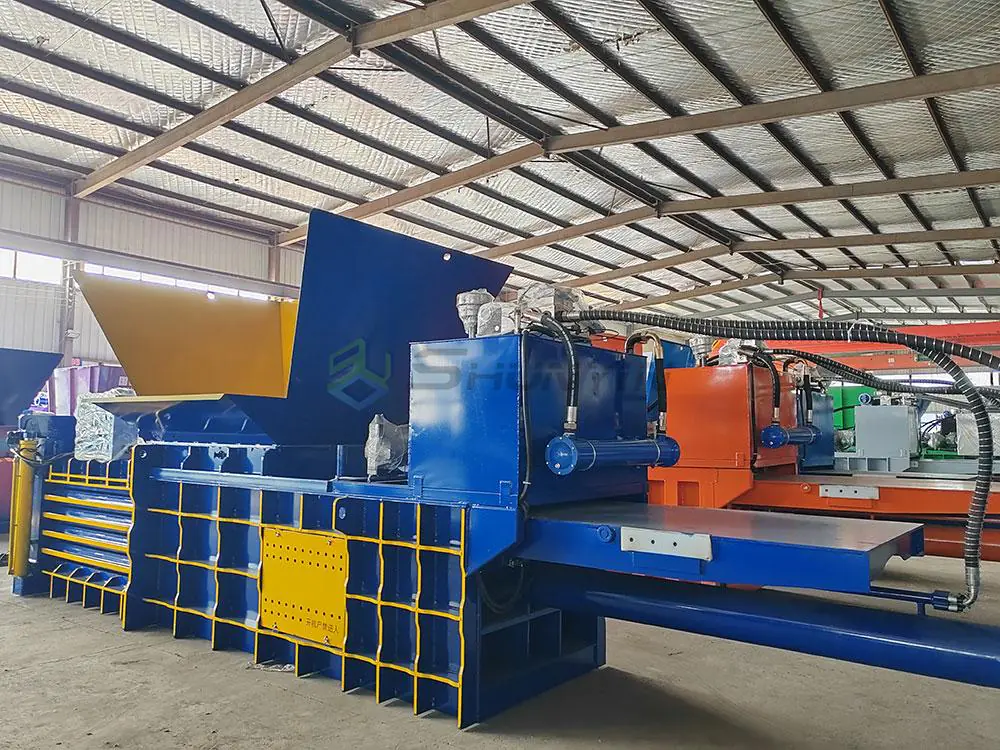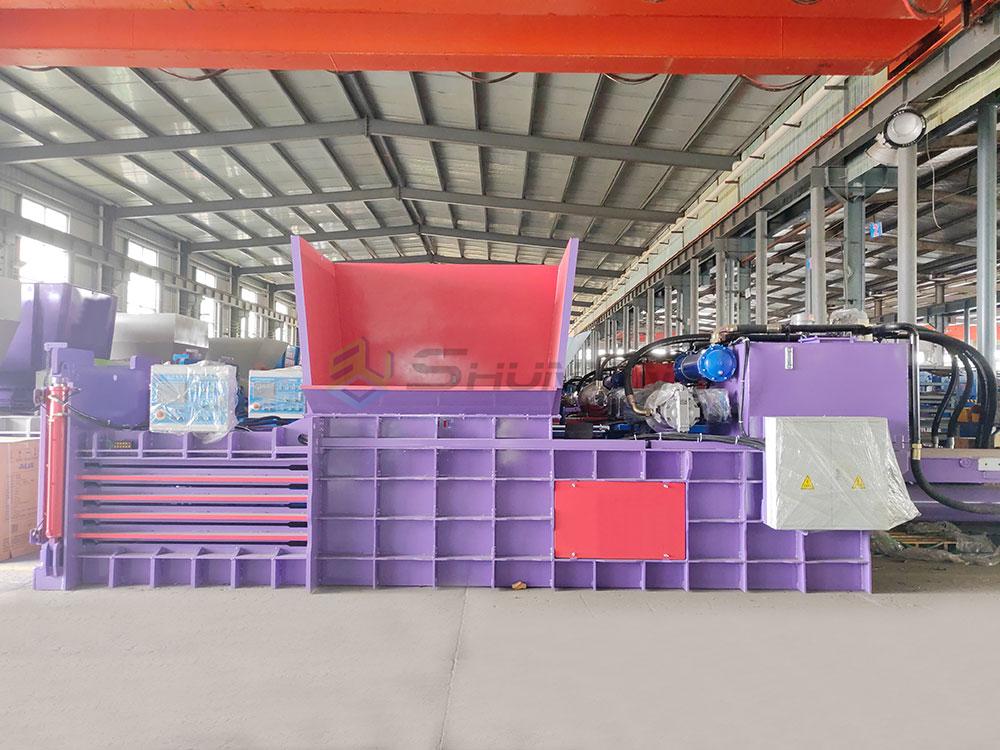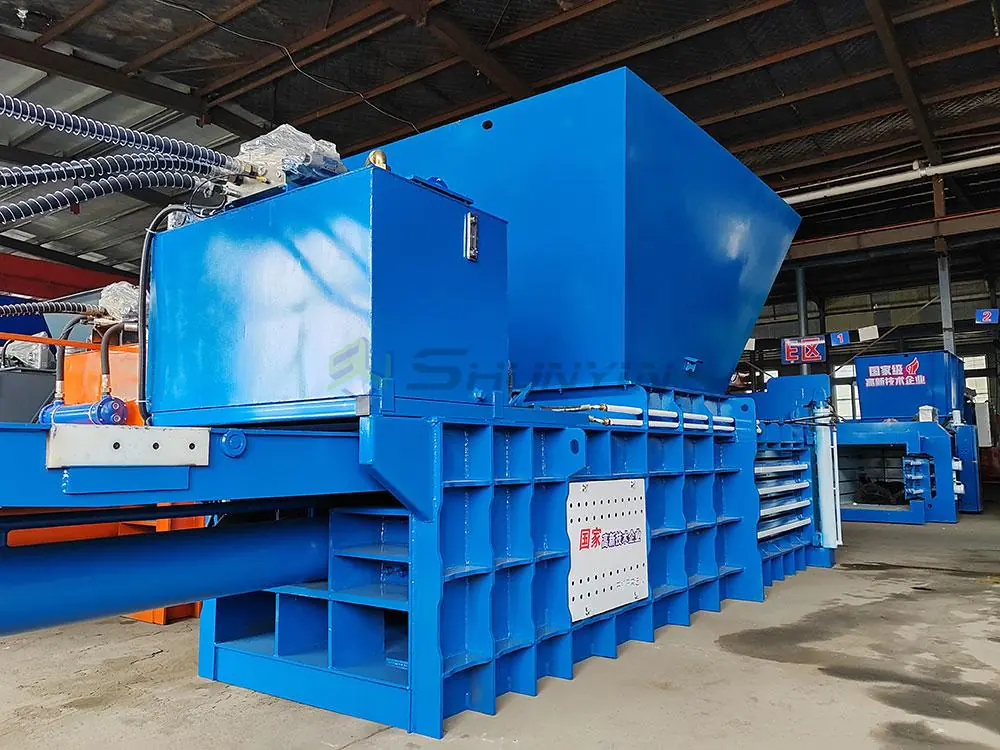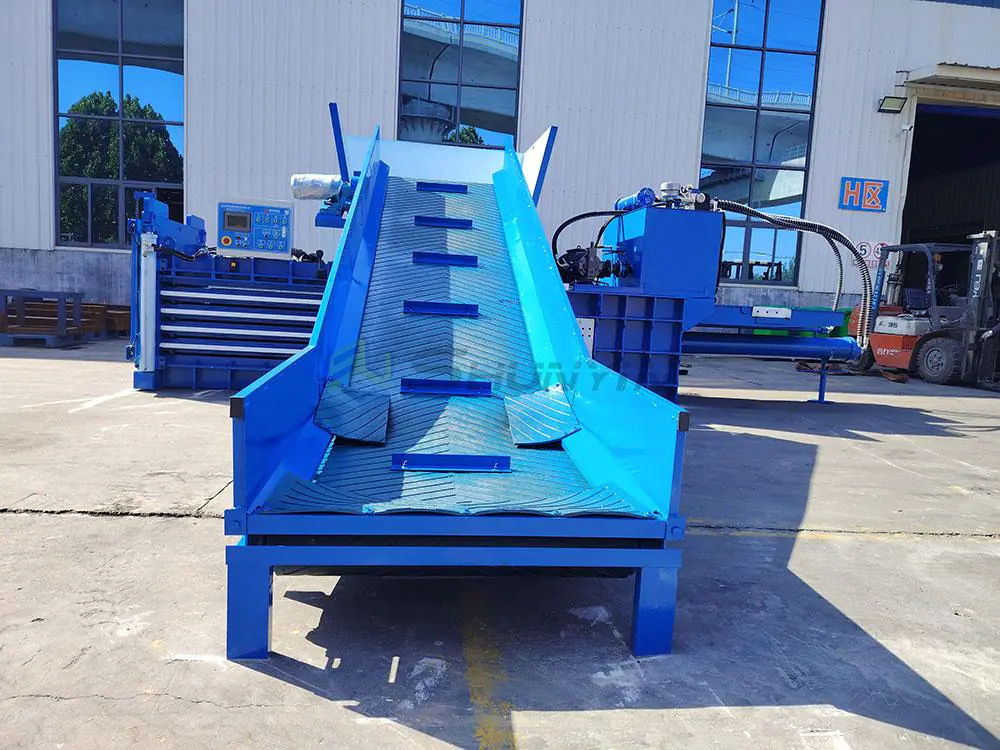
Al-Futtaim Logistics reduced cardboard handling costs by 52% using HX-55SA semi-auto balers – processing 18 tons/day into 720kg ISO-certified bales despite 45°C ambient temperatures.
Semi-automatic horizontal balers cut Middle Eastern warehouse costs to $6-11/ton through 220kN force control and desert-optimized components. The SAH-340 model achieves 8:1 compression with 0.5kWh/kg energy use – critical with UAE’s 230V/50Hz grid constraints and sandstorm challenges.
Discover four purchase criteria refined through Gulf-region operational data.
What Is the Price of an Automatic Baler?
Abu Dhabi’s Lulu Group paid AED 167k for their 80-ton unit but recovered 94% costs through 14-month recyclables sales – true value lies in operational parameters, not price tags.
2024 Gulf Region Pricing Matrix
| Capacity | Automation Tier | Price Range (AED) | Key Features |
|---|---|---|---|
| 40-ton | Basic Semi-Auto | 58k-89k | Manual feed gate |
| 60-ton | Enhanced Semi | 94k-127k | Load sensors |
| 100-ton | Pro Semi-Auto | 143k-189k | Auto-tie system |
| 150-ton | Hybrid Mode | 221k+ | AI-assisted cycles |

Hidden Cost Analysis (3-Year Period)
| Cost Factor | Basic Semi | Pro Semi-Auto |
|---|---|---|
| Energy | AED 21k | AED 9k |
| Hydraulic Fluid | 15 changes | 8 changes |
| Downtime | 18 days | 2 days |
| Training | AED 14k | AED 3k |
| Total | AED 93k | AED 44k |
Cost Mitigation Example:
Doha’s QTerminals:
- Installed sand filters (+AED 1.8k) → maintenance interval ↑62%
- Added oil cooler (+AED 3.2k) → fluid life extended 3x
What Is a Baler in a Warehouse?
Sharjah’s Gulftainer processes 22 tons/day using semi-auto balers – redefining warehouse economics through three operational transformations.
Core Functions in ME Warehouses
-
Space Recovery:
- Original: 1,200m² → Current: 90m²
- Repurposed area generates AED 58k/month
-
Waste Valorization: Material Loose Value Baled Value Corrugate AED 40/ton AED 155/ton PET Straps AED 220/ton AED 680/ton

- Risk Management:
- Fire incidents ↓ from 3 → 0 annually
- OSHAD fines eliminated
- Insurance premiums ↓ 17%
Jebel Ali Case Study:
- Achieved ISO 14001 & ESMA compliance
- Attracted 9 new eco-conscious clients
What Should You Do Before Making a Bale or Performing General Maintenance to a Baler?
Kuwait’s Agility Warehousing slashed repair costs 68% through strict pre-operation protocols – implement these seven Gulf-specific checks.
Mandatory Pre-Baling Checklist
-
Material Inspection:
- Remove metal >3mm (common in GCC shipments)
- Verify moisture <12%
-
Machine Prep: Component Check Tolerance Ram Alignment Laser gauge ±0.08mm Hydraulic Temp Infrared <65°C Wire Tension Force meter 180-220kgf

Critical Desert Maintenance
Riyadh Facility Protocol:
- Daily:
✔️ Clean air filters (sand accumulation)
✔️ Check coolant levels - Weekly:
✔️ Grease joints with high-temp lubricant
✔️ Inspect hoses for UV degradation
Failure Prevention Data:
- Proper maintenance → 83% fewer breakdowns
- Extended component life by 4.7 years
What Is an Automatic Baler?
Dubai’s DP World achieves 92% uptime using semi-auto balers – balancing automation with regional practicality through five design adaptations.
ME-Optimized Automation Features
-
Climate Control Systems
- Hydraulic oil cooler (45°C ambient capacity)
- UV-resistant control panels
-
Power Management Feature Benefit Soft Start Handles voltage sags Батарея Backup Safely completes cycles during outages

-
Material Handling Parameter Manual Semi-Auto Feed Rate 4.8t/hr 9.1t/hr Worker Contact Continuous <2min/t
Oman Case Results:
- Labor costs ↓ from AED 9.3/t → 1.8/t
- Fatigue-related errors eliminated
Conclusion
For Middle East warehouses:
1) Semi-auto balers offer optimal ROI at 60-100k AED
2) Desert-proofing is non-negotiable
3) Maintenance prevents 83% of breakdowns
Spec Checklist:
✓ 200-300kN pressing force
✓ IP65 dust protection
✓ 45°C hydraulic cooling
✓ ESMA/SASO certification
Validation Steps:
✔️ 72-hour test with mixed materials
✔️ Verify Arabic/English HMI
✔️ Check local spare parts inventory
Select vendors with verifiable GCC installations – 61% of imported units fail within 18 months without regional adaptations. Demand steel-reinforced hoses and sand filtration systems specifically designed for Gulf conditions.

